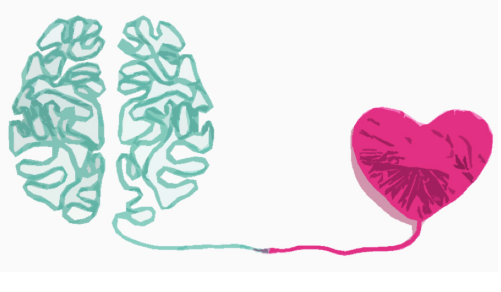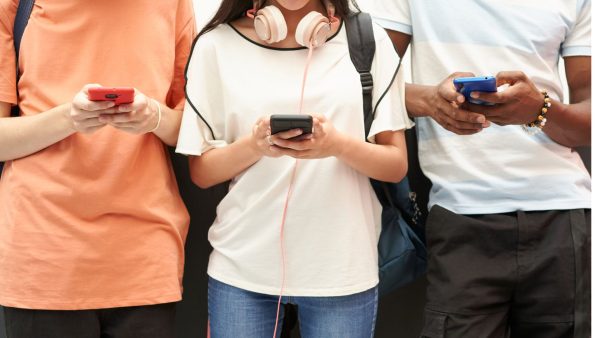Make the Most of Your Time at Home
We’ve got plenty of it!

Photo by Creative commons
This photo, from the Florida Institute of Technology represents precisely the balance that people seek when spending time at home. Mental and physical health work synergistically to establish a positive sense of self.
Although the return to school has added to people’s schedules significantly, the lack of extracurricular activities and social gatherings have left abundant free time. The question is, what to do with it? Total lockdown, in the earlier stages of the COVID-19 Pandemic, was a trying time for much of the U.S. population, as the boredom began to impact mental health. Without a full schedule or interactions with others, many people lost motivation to complete physical tasks or strengthen their mind. So, weight gain, mental health issues, and loss of academic capabilities are all common struggles Americans have faced. Now that the outlook on our collective situation has begun to take a more positive turn, accomplishing tasks is a bit easier.
However, this ample free time and the unawareness towards fill it, continues to be an issue. To combat this problem, the key is to look at the areas within oneself that have taken the biggest hit during the pandemic.
For some this means physical health. Eating habits have begun to change, according to a survey conducted by the International Food Information Council, “more than 40% of consumers under the age of 35 reported snacking more than normal.” As high school students, this directly relates to our age group. Additionally, people have fallen off of workout routines, or have lacked motivation to begin a regimen.
When reporting to Gulf News, clinical psychologist Marisa Lobo Biddappa explains, “A person is said to be lazy if he/she has the potential to carry out some activity that ought to be carried out, but is unenthusiastic to do so because of the effort involved. Instead, he/she engages in some other, less strenuous activity; or just remains idle.” The extended period of the COVID-19 pandemic has kept people in their homes and mostly on their couches/beds. Diet and exercise are the obvious keys to resolving the physical problems the population is facing.
To add, a Patchogue-Medford High School senior who has practiced a strict workout routine during the pandemic states, “ I set aside a certain amount of time on Thursday/Friday for myself and exercise, I try to double it on Monday and Tuesday.” This may be a struggle for a beginner in the physical activity realm, or for anyone who has taken these months off. But, this is a great idea to set a schedule and develop a sense of normalcy for oneself. The physical work will obviously promote positive results in that area, and mentally, exercise has scientific benefits.
According to HelpGuide, “Regular exercise can have a profoundly positive impact on depression, anxiety”… “It also relieves stress, improves memory, helps you sleep better, and boosts your overall mood. And you don’t have to be a fitness fanatic to reap the benefits.” People of any fitness-expertise level can practice some physical activity to improve multiple aspects of themselves. Recommendations for a proper diet by Cancer.org emphasize swapping unhealthy snacks and foods for whole fruit, hummus, edamame, or string cheese, just to name a few. These small changes help to get back into making smarter eating choices when there is nothing but time to indulge.
For others, this bountiful time at home presents opportunity for mental improvements. Without large groups of friends and family around or the distractions that used to consume our time, one’s mental health should be an area of focus. To avoid depressed energy from developing, establishing goals and finding alternative forms of connection are vital. Since clubs and activities cannot lay out responsibilities or structure for people, self-created goals are a great way to stay motivated and positive. For instance, in order to force oneself to get out of bed on a “boring weekend,” an alarm and morning routine would be a good solution. Planning a new breakfast recipe to make or going for a walk in the neighborhood before starting the rest of the day also can bring out a sense of accomplishment, this can stimulate positive mental health.
GoodTherapy writes, “Consider adding something to your routine that adds a spark of joy and motivation—something that helps pull you out of bed and boost your mood. This could be anything from an activity you enjoy, such as walking a dog, to a new type of coffee you’re excited to try.” All of these ideas add events and excitement to the time spent in the home. Furthermore, despite the inability to spend time with loved ones, the day does not need to be spent in isolation.
Although it is commonly replaced with texting, a phone call or even a video chat both serve as communication alternatives that can create a sense of togetherness. Reaching out to a relative and catching up or chatting with a friend can prevent lonely thoughts from seeping into one’s realm of thought. The CDC reports that around 11% of U.S. adults have seriously considered suicide during this pandemic. Restructured routines and communication habits can inspire a restructured mind-frame, therefore improving mental health.
Locally, we are back in school and are slowly reopening communities. However, in-person school is only two days a week, and the regulations of the pandemic still prevent us from seeing people in a typical way. So our time at home remains on the more plentiful side, prompting mental and physical struggles. With a few changes to our schedules, though, a day of nothingness, can shift to a productive day.






